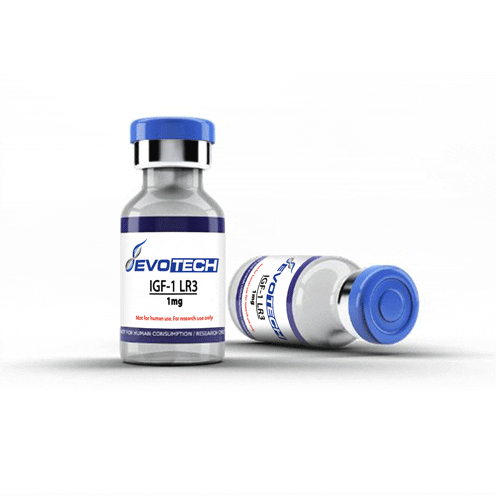Last Updated on January 3, 2025
Peptides to build muscle have caught the eye of the bodybuilding world. We’ve noticed more and more people talking about these substances as athletes and gym-goers search for fresh ways to boost their performance and looks. Peptides are tiny chains of amino acids that can pack a punch when it comes to growing muscle helping you recover, and changing how your body looks overall.
This article looks at how peptides help build muscle and their part in bodybuilding. We’ll examine the science behind these substances, talk about some top peptides for muscle growth, and see how to use peptides . We’ll also discuss the possible upsides of peptide supplements for gaining muscle and strength. By the end, you’ll know more about how peptides might fit into your fitness plans.
What are Peptides?
Definition and structure
Peptides are small chains of amino acids, which serve as the basic components of proteins. We can view them as tiny proteins made up of 2 to 50 amino acids joined by peptide bonds. These bonds form when the carboxyl group of one amino acid links to the amino group of another letting out a water molecule in the process.
Peptides have a simpler structure than full-length proteins. They have an N-terminal (amine group) at one end and a C-terminal (carboxyl group) at the other, except for cyclic peptides. This straight-line setup gives peptides their special qualities and roles.
Natural occurrence in the body
Our bodies make many peptides that play key roles in lots of body processes. These peptides we make act as signal messengers helping to release more growth hormones and make proteins better. They help control growth protect us, boost our immune system, and keep our body in balance.
Take hormones, for example. Some peptides work as hormones having an impact on different body parts when cells let them out. Insulin, a peptide hormone many know about, was the first lab-made peptide. Doctors have used it to treat type 1 diabetes since 1923.
Peptides are plentiful in our bodies and we can find them in many places. Foods like proteins, nuts, and whole grains contain them. When we digest food, our body breaks down bigger proteins into smaller peptides, which can then have an impact on our biology.
Types of peptides used in bodybuilding

For bodybuilding, peptides have become popular because they might help build muscle, boost strength, and speed up recovery. Bodybuilders often use these types:
- Growth Hormone-Releasing Hormones (GHRH): These peptides have an influence on the pituitary gland to make and release more growth hormone. You’ll find examples like sermorelin, tesamorelin, CJC-1293, and CJC-1295.
- Growth Hormone-Releasing Peptides (GHRP): These work by copying what ghrelin does, a hormone that triggers growth hormone release. Well-known GHRPs include GHRP-2, GHRP-6, and hexarelin.
- Insulin-like Growth Factor (IGF-1) Peptides: IGF-1 is a hormone that looks like insulin in structure. It plays a key role in helping muscles grow and fix themselves. IGF-1 LR3, a stronger type of regular IGF-1, stays in the body longer. This makes it good at helping muscles get bigger.
- Mechano Growth Factor (MGF): This is a different form of IGF-1. It helps muscles grow in specific areas. It also cuts down on muscle damage that happens during exercise.
These peptides for muscle growth are thought to trigger the release of growth hormones, which might lead to more muscle mass better strength, and less body fat. Some peptides could also block myostatin allowing muscles to grow more.
Keep in mind that while peptides show promise for bodybuilding, you should be careful when using them. Peptides seem to work by interacting with receptors or proteins in the body, doing more than single amino acids can. But we need more studies to understand how safe they are and what they do over time.
To wrap up, peptides are a special group of compounds that sit between supplements and hormones. They occur in our bodies and might help with muscle growth, which has caught the eye of the bodybuilding world. As scientists keep studying them, we might learn more about how to use peptides to build muscle and recover better.
How Peptides Work for Muscle Growth
Bodybuilders and fitness fans have shown more interest in peptides for muscle growth . These short chains of amino acids have become popular because they might boost muscle growth, speed up recovery, and make you perform better. In this part, we’ll look at how peptides help muscles grow and what they do in the body.
Stimulating growth hormone release
Peptides help muscles grow by causing the pituitary gland to release human growth hormone (HGH). Growth hormone-releasing peptides (GHRPs) and growth hormone secretagogues (GHS) work well for this. These peptides stick to specific spots on cells, which leads to HGH release 1.
Higher HGH levels in the body have an impact on muscle growth in many positive ways. HGH is essential to develop muscles, as it helps muscles grow bigger and makes them denser and stronger 2. Also, HGH tells the liver to release insulin-like growth factor-1 (IGF-1), which helps to produce more muscle protein and boosts growth 3.
To promote protein synthesis
Peptides that help muscle growth also boost protein synthesis, which plays a key role in building and fixing muscle tissue. Some peptides can have a direct impact on muscle growth by increasing protein synthesis and helping new muscle tissue form 4. As an example, insulin-like growth factor (IGF-1) peptides are good at kickstarting muscle protein synthesis.
Protein synthesis demands a lot of energy and needs many translation factors, aminoacyl-tRNAs, and ribosomes. Peptides can boost this process by turning on important signaling pathways, like the mammalian target of rapamycin (mTOR) pathway. The mTOR pathway plays a key role in controlling protein synthesis, and when it’s activated, it can result in more muscle growth and better recovery 5.
Improving recovery and repair
Peptides also help muscle growth by speeding up recovery and repair. When you recover faster, you can train more often and with better quality, which leads to bigger gains in muscle size and strength.
Research shows that certain peptides can help to reduce muscle damage after workouts and have a positive impact on connective tissue 6. For example, some peptides work to lessen muscle soreness, bring down inflammation, and cut back on oxidative stress. This allows athletes to bounce back faster between hard training sessions.
We’ve also discovered that some peptides have restorative qualities. They aid in the healing and repair of connective tissues, ligaments, and joints. This proves helpful for bodybuilders and athletes who want to lower their chances of getting hurt and keep up with their training schedules.
To wrap up, peptides play a role in muscle growth through several ways. They help build muscle, boost protein production, and speed up recovery. These compounds trigger the release of growth hormones, turn on pathways that build tissue, and aid in fixing damaged muscle. This creates the right conditions for bigger stronger muscles. Keep in mind that we need more studies to grasp the long-term effects and safety of using peptides for muscle growth. As we keep looking into what they can do, peptides might open up new paths for people who want to get the most out of their muscle-building efforts.
Popular Peptides for Bodybuilding
Growth hormone secretagogues (GHS)
Growth hormone secretagogues (GHS) have caught the eye of many in the bodybuilding world because they can boost the body’s production and release of human growth hormone (HGH). Research shows these peptides can raise HGH and IGF-1 levels in the blood of both grown-ups and kids 1. This has made them a hot topic for bodybuilders who want to build more muscle and burn fat faster.
A well-known GHS is ipamorelin. It has an influence on IGF-1 levels causing them to rise. It helps muscle growth, cuts down body fat, and gives you more energy when you work out. MK-677 also called ibutamoren, is another important GHS. It prompts your body to make more growth hormone and IGF-1. At the same time, it slows down how fast your body breaks these down. This creates an environment in your body that’s good for building muscle 2.
Keep in mind that GHS peptides can trigger HGH release, which might boost muscle growth and help burn body fat. However, we need more studies to figure out their long-term impacts and how safe they are. Right now, we don’t have much information about using GHS for a long time 3.
Insulin-like growth factor (IGF-1)
Insulin-like growth factor-1 (IGF-1) has a key influence on how skeletal muscles grow during development, regenerate, and get bigger due to training 4. IGF-1 helps build muscle by turning on the PI3K/AKT signaling pathway, which also stops mitochondria from dying off. Also, IGF-1 boosts the making of glycogen and might help GH break down fat 5.
A well-known type used in bodybuilding is IGF-1 LR3, an altered form of natural IGF-1 that lasts longer in the body. It has a big impact on muscle growth by boosting nitrogen retention and protein production. This causes muscle cells to grow and new ones to form helping users build more muscle. IGF-1 LR3 also speeds up muscle recovery making it a top pick for bodybuilders and athletes 6.
Yet, we need to be careful when using IGF-1. Higher IGF-1 levels might make you more likely to get certain cancers, so it’s essential to manage its use for muscle growth 5.
Body protection compound (BPC-157)

Bodybuilders have started to like BPC-157, or Body Protection Compound 157, because it might help heal and fix tissues. This lab-made peptide comes from a protein in the human stomach. It helps heal different parts of the body such as muscles, tendons, ligaments, and the digestive system.
BPC-157 has an influence on regeneration making it a top pick for people who want to heal quicker from injuries and tough workouts. It helps heal different types of tissues, like muscles, tendons, and ligaments. This matters a lot to bodybuilders and athletes who often get hurt. Also, BPC-157 has an impact on reducing inflammation, which helps with recovery and muscle growth.
Studies show BPC-157 can speed up healing in cut rat Achilles tendons. It can even help tendon-to-bone connections work better soon after Achilles detachment. This hints at possible benefits for bodybuilders dealing with tendon injuries or strains.
What’s more, studies show that BPC-157 boosts the number of growth hormone receptors in tendon fibroblasts. This could play a role in its healing properties. This link to growth hormone pathways might also affect muscle growth and recovery.
The potential upsides of BPC-157 for bodybuilding look good, but keep in mind that we need more studies to grasp its long-term effects and best use in humans. Like any peptide, you should think and get expert advice before adding BPC-157 to your bodybuilding plan.
Conclusion
Peptides are changing the bodybuilding scene giving athletes fresh options to grow muscle and step up their game. These tiny amino acid chains affect muscle growth in several ways. They trigger the release of growth hormones, help make proteins, and speed up recovery. The possible upsides are thrilling, but we need to keep in mind that scientists still have work to do. They need to figure out how safe these peptides are and what they might do to our bodies over time.
We’ve looked at how bodybuilders can use different peptides to reach various goals. Growth hormone secretagogues boost HGH levels, IGF-1 helps build muscle, and BPC-157 speeds up recovery. Each peptide has its own benefits. But remember, you need to be careful and get expert advice when using them. Scientists keep studying peptides, and they might find new ways to use them to build muscle and improve sports performance.
FAQs

1. How do peptides enhance muscle building in bodybuilding?
Peptides aid in bodybuilding by signaling the body to release growth hormones, which are crucial for muscle growth, repair, and recovery. Additionally, they help in increasing the metabolism of fats.
2. Are peptides more effective than steroids in bodybuilding?
Peptides generally offer more gradual and sustainable muscle gains, which can lead to long-term improvements in body composition. Conversely, steroids can provide quicker and more dramatic results but may also lead to more severe side effects.
3. What are the potential side effects of using peptides?
Using peptide supplements can lead to several side effects, including allergic reactions like hives, swelling, or breathing difficulties; cardiovascular issues such as high blood pressure, rapid heart rate, and palpitations; and gastrointestinal disturbances like nausea, vomiting, and diarrhea.
4. Can peptides boost testosterone levels?
Specific peptides, such as Ipamorelin and Gonadorelin, are used in peptide therapy to stimulate the production of human growth hormone (HGH) and testosterone, thereby effectively raising testosterone levels to optimal standards.
References
[1] – https://www.healthline.com/nutrition/peptides-for-bodybuilding
[2] – https://www.performancepain.com/blog/the-best-peptides-for-muscle-growth-a-comprehensive-guide-to-dosage-and-benefits
[3] – https://r2medicalclinic.com/body-building-peptides/
[4] – https://www.tuffwraps.com/blogs/news/peptides-in-bodybuilding-a-comprehensive-guide-to-maximizing-results
[5] – https://www.performancepain.com/blog/peptides-for-muscle-growth-do-they-work
[6] – https://www.ncbi.nlm.nih.gov/pmc/articles/PMC8622853/
Author

Dr. Grant Fourie
Hi, I’m Dr. Grant Fourie, a dedicated medical professional passionate about advancing healthcare in our community. With 20+ years' of medical background, I strive to provide compassionate and innovative care to my patients. Outside the clinic, I enjoy sport and fitness hobbies, which keep me balanced and inspired.



